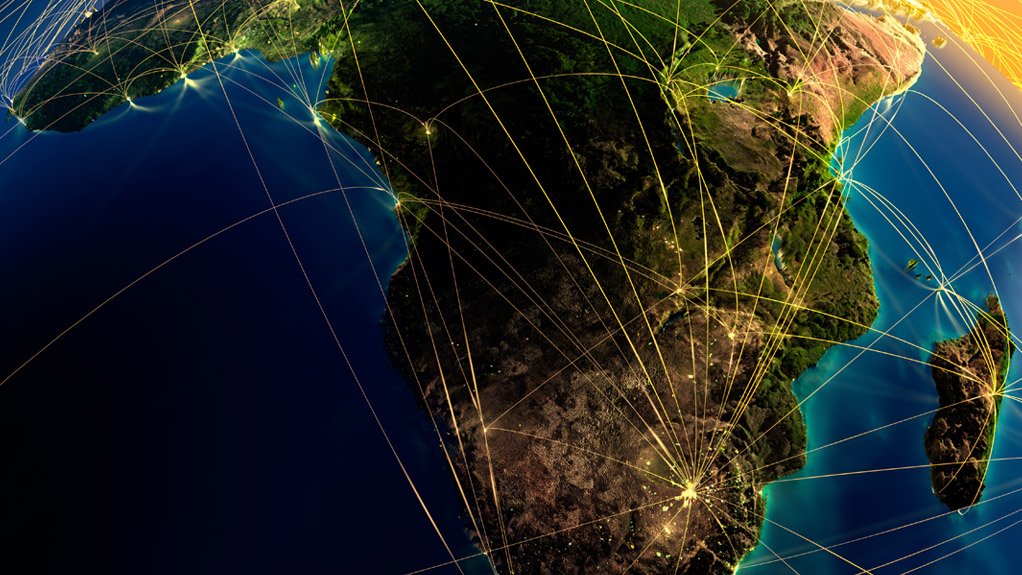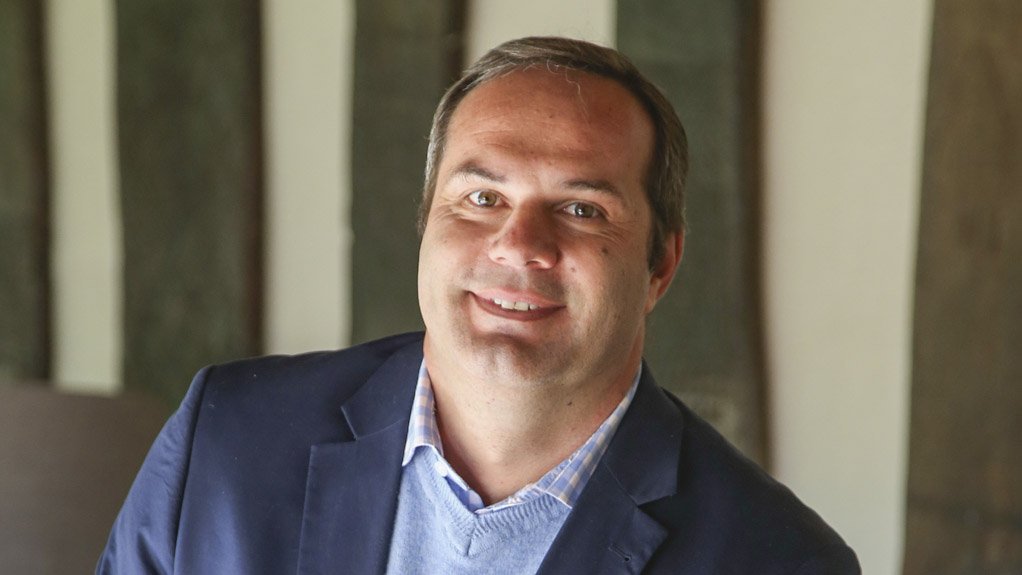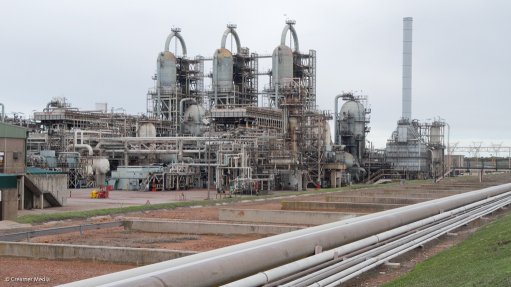Wireless communication to drive economic growth in Africa



IMPROVED CONNECTIVITY Foreign direct investment and improvements to telecommunications infrastructure have spurred a boom in information communication technology spending in Africa
RIAAN GRAHAM The gap between regulatory efficiency and regulatory quality needs to be addressed to align business in Africa with global business practices
Large-scale information and communication technology (ICT) investment can play a crucial role in fuelling gross domestic product growth through increased economic activity, innovation and productivity, but government, the private sector, donors and civil society need to take bolder steps to fast-track the process, says wireless networking equipment manufacturer Ruckus Wireless sub- Saharan Africa sales director Riaan Graham.
“The good news is that there is solid foreign direct investment (FDI) into key ICT initiatives across Africa and, given the nature of the continent, home-grown innovation and new disruptive models are opening up opportunities.”
However, FDI largely depends on the stability and sound financial policies in a region; South Africa’s recent downgrade to junk status will, for example, have a negative effect on FDI inflows and this will likely damage the ICT sector in the country, he adds.
Graham notes that there have been several changes across the US and European markets over the past year that have caused uncertainty across global markets, adding that the African investment landscape has not been impervious to these events. With fluctuating exchange rates and renewed focus on investment in the US, Africa is, moreover, likely to feel some impact in not only trade but also FDI and short-term capital.
He points out that there are, however, private-equity investors that are supporting companies where they see long-term growth opportunities, noting that FDI into Africa, combined with improvements to telecommunications infrastructure, have helped to spur ICT spending across the continent.
While there has been regional improvement in the sub-Saharan Africa region, Graham notes that the region continues to be home to economies with some of the least business-friendly regulations in the world, stifling further development.
“The biggest gap that remains is between regulatory efficiency and regulatory quality, and this needs to be addressed if we are to make doing business in Africa easy and aligned to global practices.”
Focus on Wireless
Graham notes that, for Africa, the biggest challenge to economic growth opportunities remains connectivity, stressing the enormity of the potential for digital-driven growth on the continent if it is coupled with mobile connectivity.
“This is exactly where wireless connectivity (WiFi) comes in, as it represents one of the most expedient and cost-effective ways of increasing . . . capacity and coverage of cellular networks, with a tight focus on where traffic is heaviest.”
WiFi is a cost-effective way for operators to provide Internet access for customers. Not only is it cost effective for customers but it also provides a more stable connection than third-generation (3G) technology. WiFi also provides a means of bringing broadband connection into rural areas at a lower cost than for 3G.
“Fibre will provide another necessary means to connect Africa to the world and – just like the current undersea cables – will add additional speed and capacity while decreasing the cost of broadband. However, while fibre and fourth-generation services will certainly help increase network capacity, it still won’t be enough, as history has taught us that there is an insatiable appetite for bandwidth and, now, for spectrum as well. “That is why it is imperative to add capacity and coverage as fast as possible if we are truly going to take advantage of digitalisation and the possibilities it brings – and WiFi’s role in this is critical.”
Ruckus Wireless has noted increased demand for its range of indoor and outdoor smart WiFi products from mobile carriers, broadband service providers and corporate enterprises in Africa, attesting to its rapid growth in demand.
Since opening its South African office in 2011, the company has had an average of 50% year-on-year growth in the African market, leading to its further expanding operations into the Southern African Development Community, as well as East and West Africa this year.
Ruckus Wireless is focused on technology innovation, partner ecosystems and customer service, which has led to the development of wireless solutions capable of withstanding the most challenging indoor and outdoor environments. Its Smart WiFi platform delivers scalable, high-performance WiFi with simplified control and management for on-premise and cloud-based WiFi deployments, along with new services for secure on-boarding, policy management, location services and analytics that allow for new business opportunities.
The company also introduced a Ruckus Service Provider Cloud this year, providing a fully customisable solution for service providers to deliver high- value-managed services to customers. The cloud provides a simple and fast way for service providers to offer managed WiFi, long-term evolution communication and switching services, helping them create and deploy information in efficient ways.
While South Africa is leading the drive to use ICT investment to power economic growth in Africa, the country is missing out on many growth opportunities because it lacks, for example, Internet penetration, attractive costs and the requisite speed, says Graham.
He explains that, while mobile requirements, unified communications, cloud and data requirements are contributing towards rapid digitalisation locally, the thread weaving everything together is connectivity and access.
“There is a move towards ubiquitous connectivity – businesses and individuals demand it – and this is changing the way we [perceive] business models and processes, which, in turn, demand more connectivity and investment.”
As demand grows, infrastructure becomes paramount, and Graham stresses that, while the country is moving in the right direction in this regard, much is yet to be done to ensure connectivity penetration is increased at an affordable rate.
Comments
Press Office
Announcements
What's On
Subscribe to improve your user experience...
Option 1 (equivalent of R125 a month):
Receive a weekly copy of Creamer Media's Engineering News & Mining Weekly magazine
(print copy for those in South Africa and e-magazine for those outside of South Africa)
Receive daily email newsletters
Access to full search results
Access archive of magazine back copies
Access to Projects in Progress
Access to ONE Research Report of your choice in PDF format
Option 2 (equivalent of R375 a month):
All benefits from Option 1
PLUS
Access to Creamer Media's Research Channel Africa for ALL Research Reports, in PDF format, on various industrial and mining sectors
including Electricity; Water; Energy Transition; Hydrogen; Roads, Rail and Ports; Coal; Gold; Platinum; Battery Metals; etc.
Already a subscriber?
Forgotten your password?
Receive weekly copy of Creamer Media's Engineering News & Mining Weekly magazine (print copy for those in South Africa and e-magazine for those outside of South Africa)
➕
Recieve daily email newsletters
➕
Access to full search results
➕
Access archive of magazine back copies
➕
Access to Projects in Progress
➕
Access to ONE Research Report of your choice in PDF format
RESEARCH CHANNEL AFRICA
R4500 (equivalent of R375 a month)
SUBSCRIBEAll benefits from Option 1
➕
Access to Creamer Media's Research Channel Africa for ALL Research Reports on various industrial and mining sectors, in PDF format, including on:
Electricity
➕
Water
➕
Energy Transition
➕
Hydrogen
➕
Roads, Rail and Ports
➕
Coal
➕
Gold
➕
Platinum
➕
Battery Metals
➕
etc.
Receive all benefits from Option 1 or Option 2 delivered to numerous people at your company
➕
Multiple User names and Passwords for simultaneous log-ins
➕
Intranet integration access to all in your organisation



















